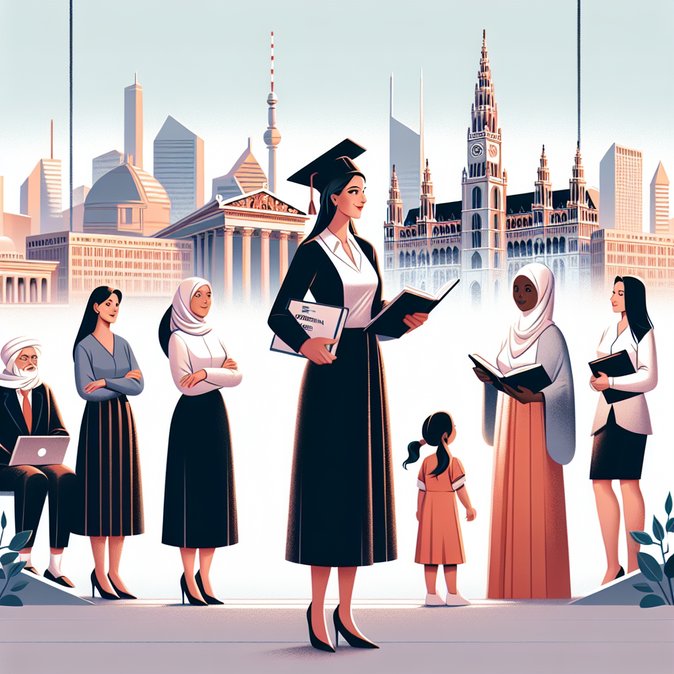
Austrian equality network Klagsverband has delivered an unusual ‘shadow report’ to the United Nations that was written largely by the women it describes: refugees and migrants living in Austria. In workshops held in Vienna, Styria and Upper Austria over the past six months, dozens of women with asylum, subsidiary-protection or other migration backgrounds drafted a catalogue of the obstacles they face—and the concrete policy fixes they want to see.
Chief among their demands is nationwide, low-cost access to German-language courses, vocational training and all-day childcare so that mothers can enter the labour market quickly. Many participants highlighted the bureaucratic labyrinth involved in recognising foreign diplomas; some reported waiting more than two years for a decision, during which time they could work only in low-paid jobs or not at all. Several contributors also called for more trauma counselling, noting that discrimination in housing, employment and schools exacerbates pre-existing mental-health issues stemming from war or flight.
The report criticises what it calls “structural barriers” in Austria’s asylum and citizenship laws—such as high income thresholds for naturalisation and the current moratorium on family reunification—and urges the federal government to use the ongoing overhaul of the Settlement and Residence Act to close those gaps. It also asks the Interior Ministry to collect gender-disaggregated statistics on asylum decisions so that gender-specific persecution claims (for example, forced marriage or female-genital mutilation) can be tracked.
For multinational companies and mobility managers the document is a useful temperature check. Austria relies on third-country talent in healthcare, IT and tourism, yet bureaucratic bottlenecks mean spouses and children often arrive months later, complicating assignments. If the UN Committee on the Elimination of Discrimination against Women (CEDAW) echoes the report’s findings in its forthcoming review, Vienna may come under pressure to streamline family-reunification visas or expand integration services—changes that would lower costs and lead-times for corporate assignees.
The Klagsverband initiative also illustrates a wider European trend toward participatory policy making in migration: letting those directly affected draft the recommendations. Should Austria adopt even part of the catalogue, employers could see faster labour-market access for accompanying partners, more predictable childcare availability and ultimately higher retention of international staff.
Chief among their demands is nationwide, low-cost access to German-language courses, vocational training and all-day childcare so that mothers can enter the labour market quickly. Many participants highlighted the bureaucratic labyrinth involved in recognising foreign diplomas; some reported waiting more than two years for a decision, during which time they could work only in low-paid jobs or not at all. Several contributors also called for more trauma counselling, noting that discrimination in housing, employment and schools exacerbates pre-existing mental-health issues stemming from war or flight.
The report criticises what it calls “structural barriers” in Austria’s asylum and citizenship laws—such as high income thresholds for naturalisation and the current moratorium on family reunification—and urges the federal government to use the ongoing overhaul of the Settlement and Residence Act to close those gaps. It also asks the Interior Ministry to collect gender-disaggregated statistics on asylum decisions so that gender-specific persecution claims (for example, forced marriage or female-genital mutilation) can be tracked.
For multinational companies and mobility managers the document is a useful temperature check. Austria relies on third-country talent in healthcare, IT and tourism, yet bureaucratic bottlenecks mean spouses and children often arrive months later, complicating assignments. If the UN Committee on the Elimination of Discrimination against Women (CEDAW) echoes the report’s findings in its forthcoming review, Vienna may come under pressure to streamline family-reunification visas or expand integration services—changes that would lower costs and lead-times for corporate assignees.
The Klagsverband initiative also illustrates a wider European trend toward participatory policy making in migration: letting those directly affected draft the recommendations. Should Austria adopt even part of the catalogue, employers could see faster labour-market access for accompanying partners, more predictable childcare availability and ultimately higher retention of international staff.









